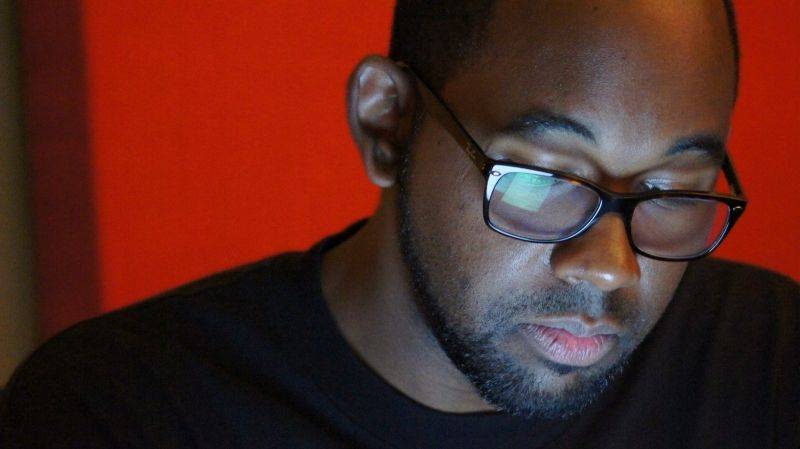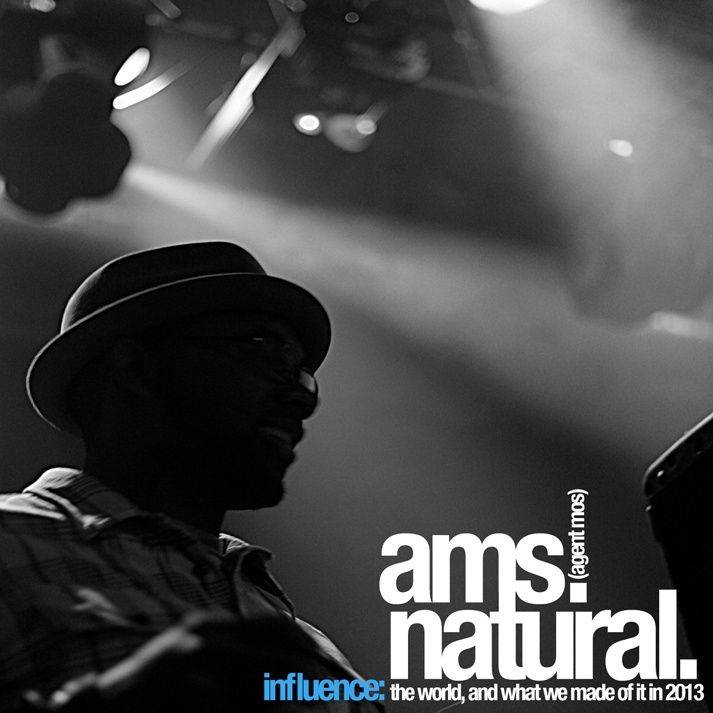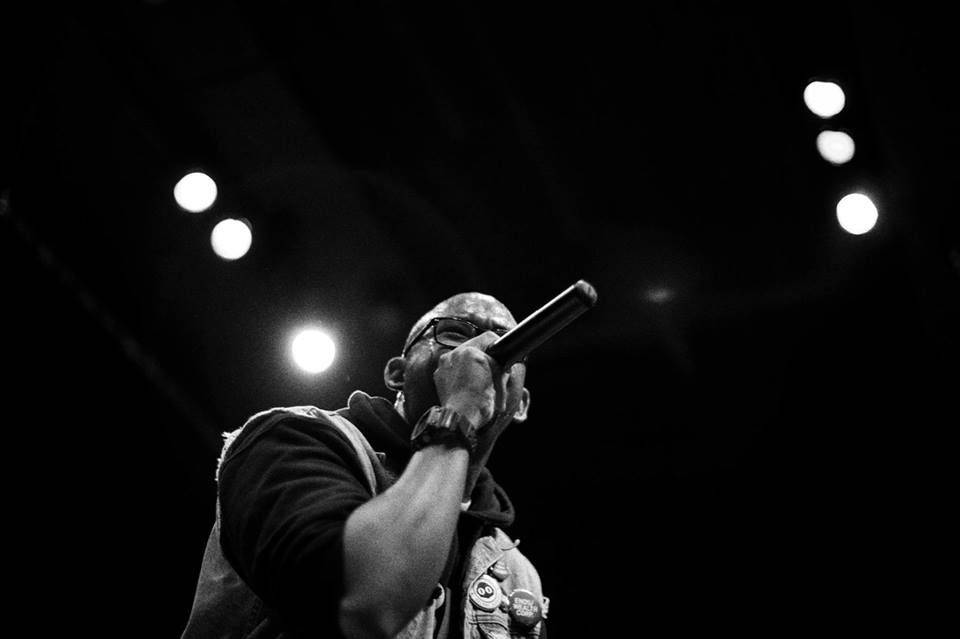From the mellow hip hop production to the soft but intense lyrical features, there’s a lot to get from Natural (Influence): The World and What We Made of It in 2013, the new record from Ed Moses, also known as Chicago-by-way-of-Champaign hip hop artist AMS.
He has the more contemporary rap lyrics about more consciousness and a lot more positivity, which is always nice compared to the angry and harsher lyrics of this generation. What I got from this album was good vibes and positivity along with a lot of great production. If anything, it’s more of an R&B album with rapping to accompany it. And in a way, the album takes you on a journey with each track, especially tracks with Amiel, “Insomnia”. Her vocals along with the smooth beats and lyrics of AMS work wonderfully. Also, AMS has a flow of a little of Common and Macklemore put together which is a winning and very unique combination.
Outside of listening to the record, I had a chance to speak with AMS prior to his performance this weekend in Champaign at Mike ‘N Molly’s.
Smile Poltely: When did you decide you wanted to be a rapper?
AMS: It’s weird, you know? After listening to years and years of odd music, doing slam poetry in high school, and strangely being dissatisfied with rap in general, for my fifteeth birthday, my cousin bought me a copy of Soundbombing 2, which quickly became an indie rap classic in terms of mix tapes. The first cut I listened to was Company Flow’s “Patriotism.” It blindsided me so thoroughly, because it was rap, but it wasn’t rap in a typical sense. I listened to that mix tape until the CD was too scratched to survive; and then, I bought another copy. From then on, I started listening closer and closer to rap music that found me, working forwards and backwards along rap music’s timeline, and trying to set some of the stuff I wrote to classic instrumentals; just trying to feel for a change in cadence. From then on, I was hooked… and it only got worse from there.
SP: How did you get your name?
AMS: The crew of heads I was part of in high school was called OUTWORLD. I originally just went by Moses, but one of my buddies said “nah, you have to have a pen name.” So, given how my delivery worked back there (a lot of words and ideas crammed on beat, and delivered just as quickly), I became Madman Moses. Shortly after, it changed to Agent MoS, as I was a huge fan of The Matrix back then, and a lot of my friends said I was “as cold as Agent Smith,” the main antagonist. That name stuck for years, until I got to Champaign for college, and found that a lot of people were mispronouncing a portion of it, making it sound like Agent Moss. So, around 2007, I shortened it to the name I have today, taking it from the capitalized portions of the moniker I went by at the time. Thus, AMS.

SP: It has a bit of old-school hip-hop and some indie/jazz smooth sounds, so what influenced the sound of your music?
AMS: My father and mother were both people that kept an incredibly eclectic collection of scatterbrained music around the house. My father was a huge jazz, funk, and classic rock (Led Zeppelin era) kind of guy, and my mother was a Motown/Disco enthusiast. Amongst all of this, they introduced me to so much of everything at the same time, that my cassette collection would look schizophrenic to anyone perusing it. In the midst of all of this, I had a family of older cousins that were break dancers, DJs, metal heads… so my family acted as the base-level influence, and I grew up “musically confused,” much to my advantage, I suppose. What it turned into is a love for the donation that groups like A Tribe Called Quest made to hip-hop as a whole, but seeing where it got taken by people years later.
SP: What would you call your music, in the form of a genre?
AMS: Oh man. If I had to stick a label to it, it definitely falls under that umbrella of hip-hop’s strange cousin.
SP: Your rapping is typical, which I appreciate, but what sets you apart from other rappers from Chicago and Central Illinois?
AMS: First off, thanks for the note of appreciation. As for what sets me apart: I will admit, I don’t know of many rappers in the Midwest as a whole that are writing songs about dead astronauts. But on the serious tip, I think it’s mostly about how I bring a story across. I love detail in written & musical forms; those strange little corners of a song that take a few times to discover. Rap music is more than capable of those notes, but I rarely hear a good deal of rappers doing so. It’s part of the pride I take in my music, and I think that’s what separates me from the pack: getting something different from my stories, musicality, timbre, cadence, delivery, tone, and imagery each time you play a song.
SP: Who would you want to collaborate with? Dead or alive? Signed and unsigned?
AMS: I strangely have one of those rapper “bucket lists” with respects to this. With respects to currently living individuals, I dream of being able to work with people like Qwel, Illogic, Tomorrow Kings, RJD2, El-P, Aesop Rock, Insight. I would give my bones to work with someone like Beth Gibbons/Portishead, DJ Shadow, Jon Theodore, formerly of The Mars Volta, or ?uestlove of The Roots. As for musicians that have passed, I’d love to have a bass line from someone like Jaco Pastorius, or Charles Mingus. I’d leap at the shot to work with people like Defcee, Adam J, Zirafa, Larry Gates, and Melodic Scribes, again.

SP: What did you want your audience to get from your album?
AMS: That rap doesn’t have to be atypical or formulaic. Yes, rap has a formula based in rhyme and rhythm. But those that have created great music from this formula are those that have stepped outside of it, or twisted the “equation” (to keep in line with the extended metaphor). Great music is made this way, and the challenge is not only to make it, but to make that formula keep changing. I’d hope that people who are and aren’t fans of rap music would give this album a try; not only because it contains parts of that formula, but also because it throws a couple of different variables in as well. Hopefully, even if it’s only for the duration of the album, a moment sticks with you, and you can nod your head along with it. A three-year journal set to static and drums.
SP: What should we expect from your next project?
AMS: For the moment, I’ve gotta keep my ideas under wraps. But I will say that it’ll be something more related to connected songs; more in a line of some of my favorite progressive rock and hip-hop albums of the past years. “A Day in the Life” sort of business, you know?








